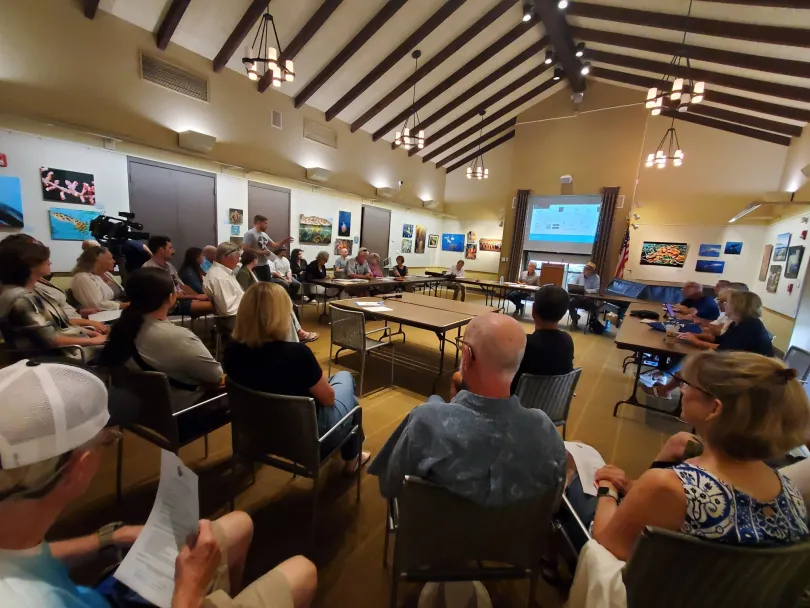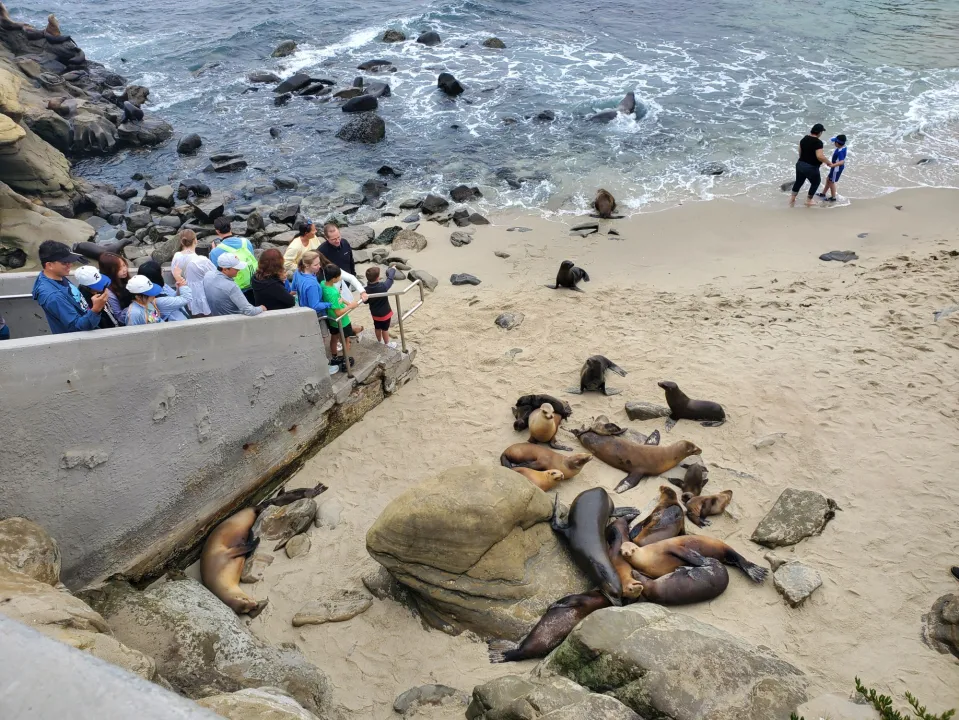Sea Lions vs Tourist Problem at La Jolla Cove Beach


Dozens of people showed up at the La Jolla Parks & Beaches board meeting on July 22 to share their thoughts amid talk of managing sea lion and human interactions at La Jolla Cove – and not everyone agreed, but they did seem to reach a consensus pointing to tourists as a main part of problem.
“We want to keep La Jolla Cove beach open,” said LJPB President Bob Evans. “I feel La Jolla Cove has reached a critical stage with the unmanaged tourist takeover on the beach. The problem is the tourists and visitors that crowd the beach and stairs and get too close to the wildlife.”
In the past, the sea lions and the beach recreational users (swimmers, divers, snorklers, beach-goers) have gotten along fine and kept their spaces with no harassments and no attacks.
Now, pinniped advocacy groups and others want to close part or all the Cove beach, because of the tourist problem.
LJPB wrote a letter in support of La Jolla Cove remaining open to the public, and to lend support to San Diego Councilman LaCava, who has said repeatedly that public access there should be maintained.
“I have a bright line to ensure continued unfettered public access to the beach and waters of La Jolla Cove,” said LaCava. “Tools at our disposal include better signage, intervention by park rangers, education through tourism channels and working with community partners. I want visitors to enjoy the unique opportunity of watching wildlife in an urban setting, and the public’s access to the La Jolla Cove beach and waters must always come first.”
Others argued for more in-depth studies of the area’s sensitive State Marine Reserve environment, citing concerns about pinniped overpopulation and the negative impact on pollution and threatened and endangered species within the area.
The LJPB board voted to send the letter to the city emphasizing the need for an ecological study, and calling on the city to propose a comprehensive human and wildlife management solution based on those findings. The board also expressed a desire to work with city representatives on those efforts.
